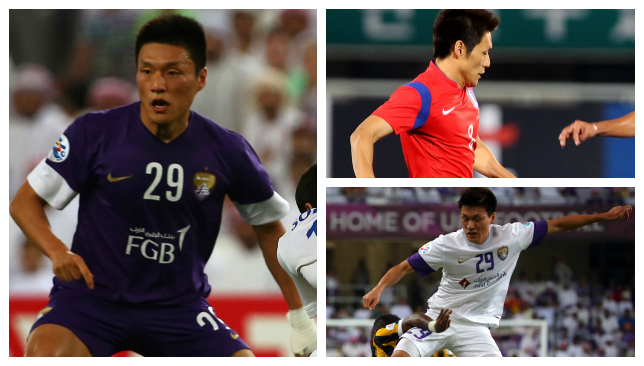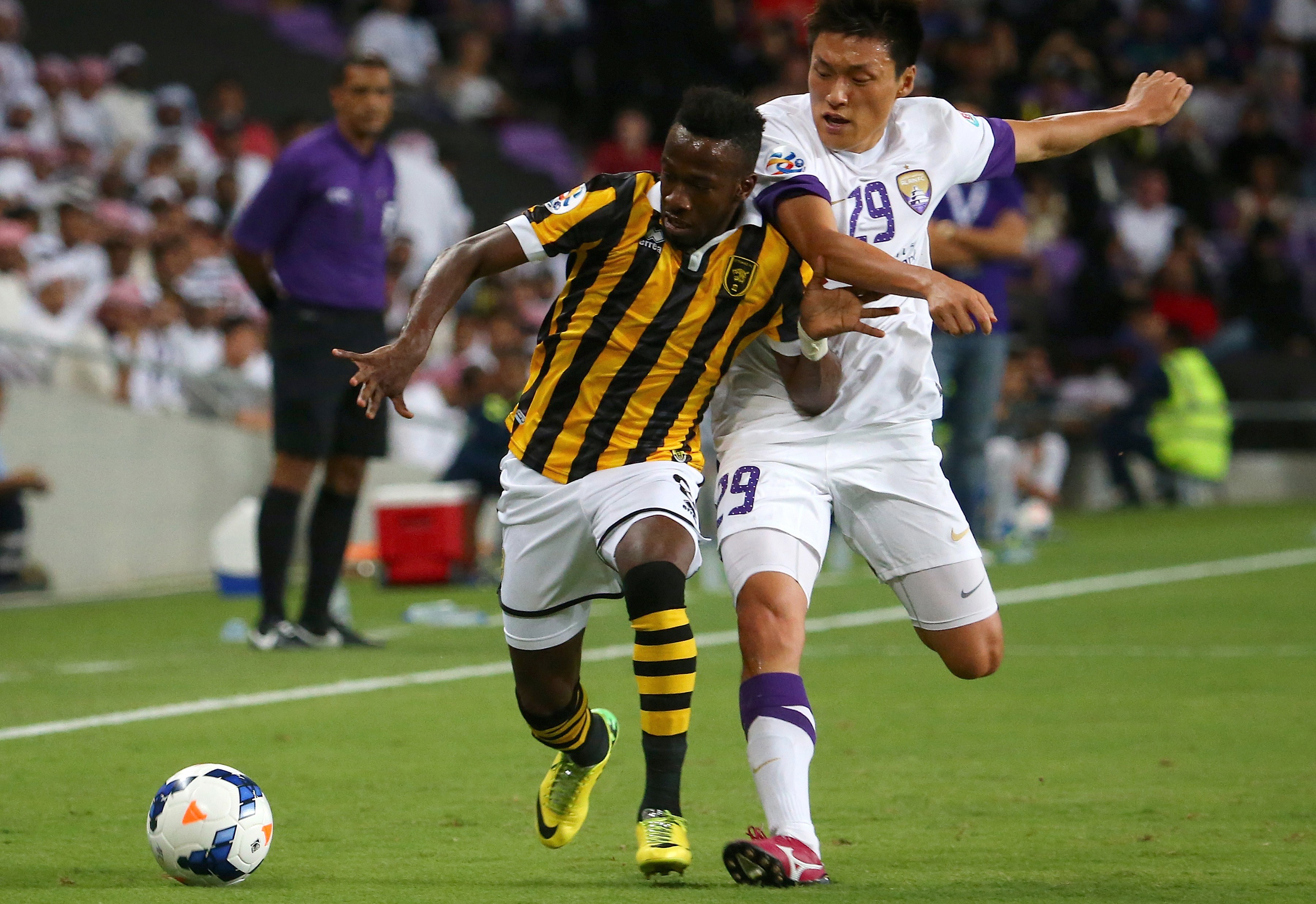
Al Ain won the 2003 Asian Champions League and have come close to repeating the feat more than once since. This year could well be the year. They have one of the continent’s biggest stars in Omar Abdulrahman and always boast a big foreign import or two. Despite the reputation of ‘The Boss’ around Asia, however, one of their best players continues to be criminally overlooked by his national team.
Lee Myung-joo, an all-action midfielder from South Korea, has become a vital cog in the Al Ain machine since his transfer from Pohang Steelers in June 2014. It was a Korean transfer record as the Boss paid Dhs18 million (£3.5m) for the services of the 2012 K-League Rookie of the Year.
The player had just been left out of Korea’s World Cup squad at the time but his stellar performances for Pohang had some fans wondering why. Hard-working and intelligent, at the time of the transfer he was the perhaps the best midfielder in the league and despite being cut from the squad for Brazil, Lee looked destined for a special international career.
When coach Hong Myong-bo resigned after a dismal time in South America, Lee’s prospects looked even better. Uli Stielike, with experience coaching in Qatar, took over and called up the Al Ain ace.
In the last few months of 2014, Lee was given chances against South American opposition, scoring in a 3-1 win over Venezuela, and then made the 2015 Asian Cup squad. His only appearance in Australia, however, was in the second group game against Kuwait with the Taeguk Warriors struggling with injuries and a number of players absent due to a virus sweeping the camp. He has not pulled on the red shirt since.
He has almost been forgotten. Back home, there is the occasional mention of his exploits with Al Ain in the Asian Champions League but the man who commanded the biggest ever transfer fee in the K-League’s history is barely mentioned.
Moving to the Middle East may be an increasingly common career choice for Korean players but it can be a risk. In the past, national team coaches would watch players at home or in Europe with the occasional side trip to Japan. Nowadays, China has usurped the J.League as a destination for Koreans but it is still rare to see a coach go to the Middle East. Players who go there can risk falling off the radar.

Such transfers are also not so popular with the fans and media, even if attitudes have softened a little. It was okay for central defenders such as Lee Jung-soo and Kwak Tae-hwi to go west once they passed the peak of their careers. These were experienced professionals and the K-League does not pay big money in international terms.
There is still some disappointment, though, when younger players go to Qatar or the UAE. The assumption is that it is all done for money and that they are damaging their careers going to leagues that are seen as inferior to the one they are leaving.
Stielike has actually been criticised by some for being too loyal to players who move west. In the last squad named in June, there were four: Kwak, now with Al Hilal in Saudi Arabia, Lim Chang-woo at Abu Dhabi’s Al Wahda and the Qatari-based pair of Nam Tae-hee and Han Kook-yong. None are certain starters but Stielike is not averse to calling them up.
But not Lee. The former Pohang man is a vital player at perhaps the best team in the whole region. His consistency is impressive and he would be a star for any K-League team. Unfortunately, the Asian Champions League is now split into two geographical regions right until the final. Had they continued to merge in the last eight, there would have been more chance of Lee facing either FC Seoul or Jeonbuk Motors.
In a recent interview in Korea, Lee put his absence down to his passive personality, saying that in past call-ups he did not do enough to stand out in terms of skill on the pitch or his actions off it. He said he needs time to get to know people and this aspect of his personality does not lend itself to making a quick impact.
He also points to a plethora of young stars such as Kwon Chang-hoon and Lee Jae-sung who are coming through to the national team. But while there is excitement about such talents, the Al Ain man has also yet to reach his peak.
Al Ain midfielder Lee Myung-joo said he will return to K League next summer to serve his military duty.
— Korea Football News (@KORFootballNews) June 29, 2016
For some reason, one of Korea’s best players cannot get a look in for his country. It may well be that he has to go to Europe or (more likely given the fact that he will have to start his military duty in a couple of years) back home to get become a Taeguk Warrior once again. Or win the Asian Champions League.
Whatever happens, there will be a feeling that Korea have not managed to do what Al Ain do week in, week out and get the best out of a very talented player.